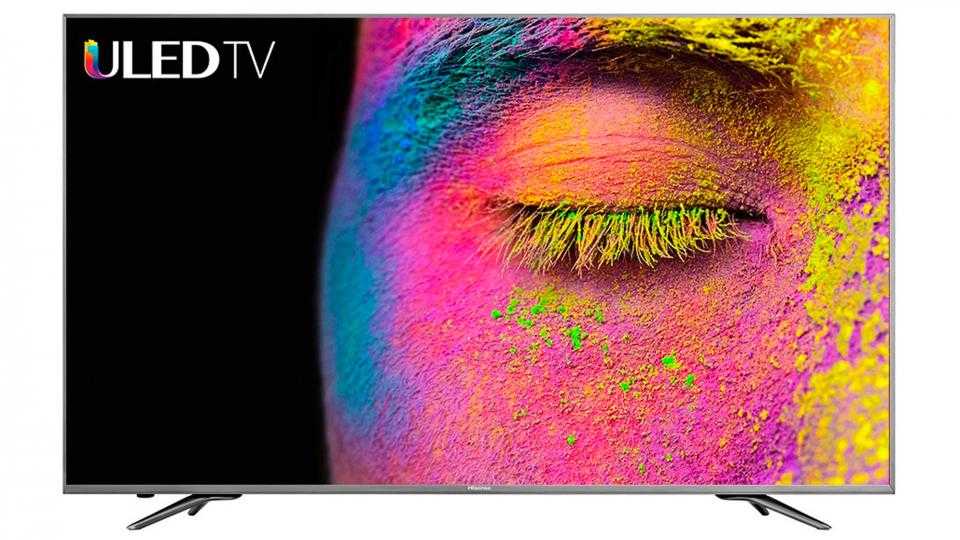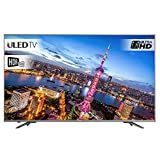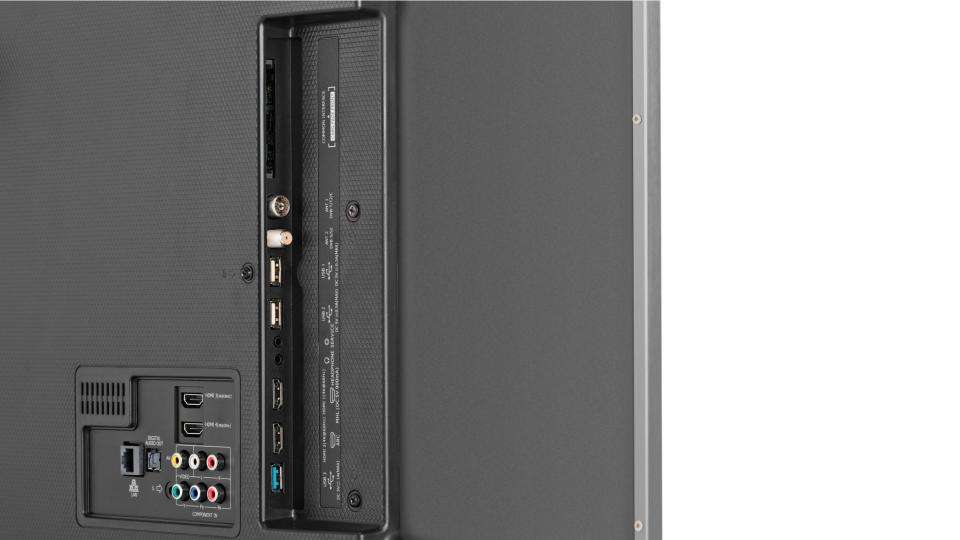In a post-Brexit UK, £600 doesn't really buy you a huge amount. A mid-range laptop, perhaps, or maybe a reasonably high-end smartphone. Or, alternatively, you could set your sights on something far more ambitious: a 50in 4K HDR TV.

The Chinese brand Hisense is launching a sustained assault on the UK TV market, and it’s pinning its hopes on a promising strategy: undercutting the competition with a family of feature-packed yet affordable TVs. The first of these to pass through Expert Reviews’ doors is the the Hisense H50N6800, a 50in 4K HDR television which is priced at under £600.

Hisense H50N6800 review: Design and connections
You could pick any number of holes in the H50N6800’s specification list, but the fact that it uses a basic edge-lit LED panel actually proves to be a benefit in design terms: as it’s so much more compact than a high-end full-array local dimming (FALD) backlight (as found on far pricier sets) Hisense has been able to create a wonderfully slim, svelte design.
Indeed, take one look at this TV and you’d immediately imagine it to cost far in excess of £600. The slender bezel has a brushed gunmetal grey finish, and the dainty chamfering along the side trim does its bit to add a touch of class. The panel is supported on a pair of feet near both ends of the screen, and although this is a design that’s currently in vogue among several major TV brands, it has one practical downside: it does take up more space on your AV rack or TV table.
The connections are found on the left side of the display, and these include four HDMI inputs. The only disappointment here is that only the first two ports support HDMI 2.0, so you’ll need to make sure that your HDR and 60Hz 4K sources are connected to the right sockets. And if you’re hoping to take full advantage of said 4K HDR content, then we have a top tip for you: you'll need to go into the user menu and switch the format mode from Standard to Enhanced before your 4K Blu-ray player will recognise the H50N6800 as 4K HDR-capable in the first place.

Hisense H50N6800 review: Picture performance and gaming responsiveness
As you’d expect, building a 4K HDR TV for only £600 requires some serious compromises to be made. One of these is the fact that Hisense has had to use a VA-type LCD panel. This isn’t a bad thing in and of itself as the technology is capable of producing fantastically strong, inky blacks, and colour accuracy isn’t too shabby either. The problem is that it also suffers from one less favourable trait: the viewing angles are narrower than pricier rival technologies, so images lose their contrast and colours become less intense when you’re not viewing the screen from as close to head-on as possible. If your living room doesn’t allow you to have your seating directly in front of the TV, and it's not possible to mount the TV at eye level, then you’d be wise to look at a TV which uses a panel with better viewing angles.
The next compromise is noticeable in the N6800’s handling of motion. As the LCD panel is limited to a refresh rate of 60Hz (meaning it can only show 60 frames per second), it’s simply not capable of providing the super smooth motion or silky panning shots in 24fps films that can be achieved by 120Hz panels with the appropriate processing.
As we mentioned earlier, building a TV to such a tight budget has meant that it simply isn’t possible to include high-end features such as a full-array local dimming backlight – instead, the Hisense H50N6800 employs one stripe of LEDs along the bottom edge of the panel to illuminate the entire screen. Although there is a local dimming setting in the user menu, which is intended to improve the contrast and black level by dynamically adjusting the backlight, engaging it introduced noticeable brightness fluctuations and didn’t actually improve black level at all. We'd be inclined to turn it off.
And if you were hoping for a stunning HDR presentation for less than £600, then prepare to come away disappointed. The Hisense N6800's peak luminance in HDR mode is only 405cd/m2, which is yet another limitation of the LCD panel used. On the bright side (pun intended), the TV handles Ultra HD Blu-rays that are mastered to 1000cd/m2 (i.e the intended maximum brightness of the brightest images in the movie) quite well, as its tone-mapping does a very good job of creating a vibrant image that retains most of the brightest detail. However, the same can’t be said for HDR material which is mastered to 4,000cd/m2, as the Hisense’s tone-mapping simply isn’t capable of retaining those intensely bright highlights without making the rest of the image look far too dark. Depending on the movie, that means that you may have to disable HDR mode to get the best image quality.
On the flipside, Hisense H50N6800 is a highly capable choice for gamers seeking big-screen 4K thrills on a budget. Fire up your PS4 or Xbox, and input lag measures only 31ms in both 1080p SDR (standard dynamic range) and 4K HDR modes, as long as the relevant [Game] picture presets are selected.
Buy the Hisense H50N6800 from John Lewis now
Hisense H50N6800 review: Verdict
Following in the footsteps of the many fantastic – and fantastically expensive – TVs which have passed through our doors, the Hisense’s picture quality does comes as something of a disappointment. Brightness is lacking, which prevents HDR content from looking anywhere near its best, and there isn’t the silky smooth motion processing that you’ll get from a pricier TV.
That said, it’s be difficult to ask for much more at the price. If you simply can't stretch your budget beyond £600, but still want image quality that’s good enough to enjoy 4K TV, movies, and games then the N6800 is the best budget option going.

Leave a Reply